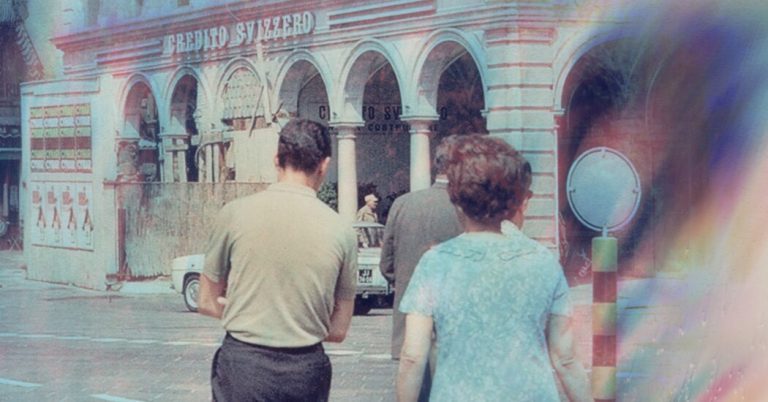When I was growing up, my dad, who has only left the country a few times, told me about the trip to Europe he took with his parents when he was 14 in 1966. He told me how much Nonie loved the spotless Swiss roads and the windows bursting with flowers. The fireplace in the hillside house outside Lugano where his father was born, with clever alcoves on either side for drying clothes or warming bread. the palpable poverty of the home in Pozzuoli, a town just outside Naples, where Nonie’s aunt lined its walls with newspaper to add insulation; Every now and then, my father would pull up the projector and show me the Kodachrome slides.
As an adult, I spent years telling him we should redo the trip together — or at least a short version where we went to Switzerland and Italy, Lugano and Naples, so he could show me where his family was from. But now that his Alzheimer’s was advancing, that sentence took on new meaning. Revisiting the past, I hoped, would help him live better in the present. A few years ago, I read about a palliative treatment for people with memory disorders called reminiscence therapy. The treatment involves activating the participants’ strongest memories — those formed between the ages of 10 and 30, during the so-called memory bump, when personal and generational identities are formed. Reminiscence therapy can take many forms: group therapy, individual sessions with a caregiver, collaborating on a book that shares the patient’s story, or simply talking among friends. But the goal is the same: to comfort, engage, increase connection – and strengthen the bond between patient and caregiver.
One of the most haunting iterations of reminiscence therapy is a place called Town Square, an adult day care for people with dementia. I visited shortly after it opened in 2018. The daycare consisted of an artificial village designed by the San Diego Opera to look like a 1950s town. It had a dining hall, beauty salon, pet store, movie theater, gas station, and city hall. By recreating the time period in which participants’ fondest memories burned, Town Square hoped to improve their quality of life. The decor offered a lot to talk about. A portrait of Elvis hung in the living room, for example, and upon seeing it, a woman talked about her teenage years, teleporting into her past. “There is no time machine except man,” writes Georgiy Gospodinov in his novel “Time Shelter,” about a psychiatrist who develops memory clinics that simulate past eras. I was initially skeptical about the business. warehouses in a double-locked setting where oldies played 24 hours a day sounded grotesque. But what I saw there—spontaneous reminiscence in a joyful setting—was perhaps the only positive vision of Alzheimer’s I’ve seen.
I wanted this for my father, I wanted to give him a sense of joy now that he had closed his shop, the place that was his world. Although he wouldn’t submit to adult day care, perhaps retracing his journey in 1966 would be like bringing him back to a tableau of his youth. To tell the truth, I also wanted to replace the memories of the past horrible years with some new ones, both for me and him. I had spent the last 16 months making countless calls to doctors and banks and his lawyers to negotiate discounts on the insurmountable interest. When he would inadvertently undermine my efforts by making random small payments or denying that he had an illness, I would snap at it and never hold it against me. No. He would vow to do better. Sometimes she would yell at me for being whiny and “pencil necked” (a demanding and formal know-it-all, I think). But even when I pushed him to the point where he hissed that I had to leave his house, I knew he loved me unconditionally and would soon apologize. He trusted me, even when I didn’t trust myself. Therefore, the ballast in my being, did not ask for anything in return, did not have a single expectation. He never got into a fight afterwards, and not just because of his illness. He didn’t hold a grudge in the way I dimly did about the mistakes he was accumulating as his brain degenerated, though I knew none of it was his fault. Still: Why hadn’t he planned? Hadn’t he seen his own mother suffer and struggle to support her?




